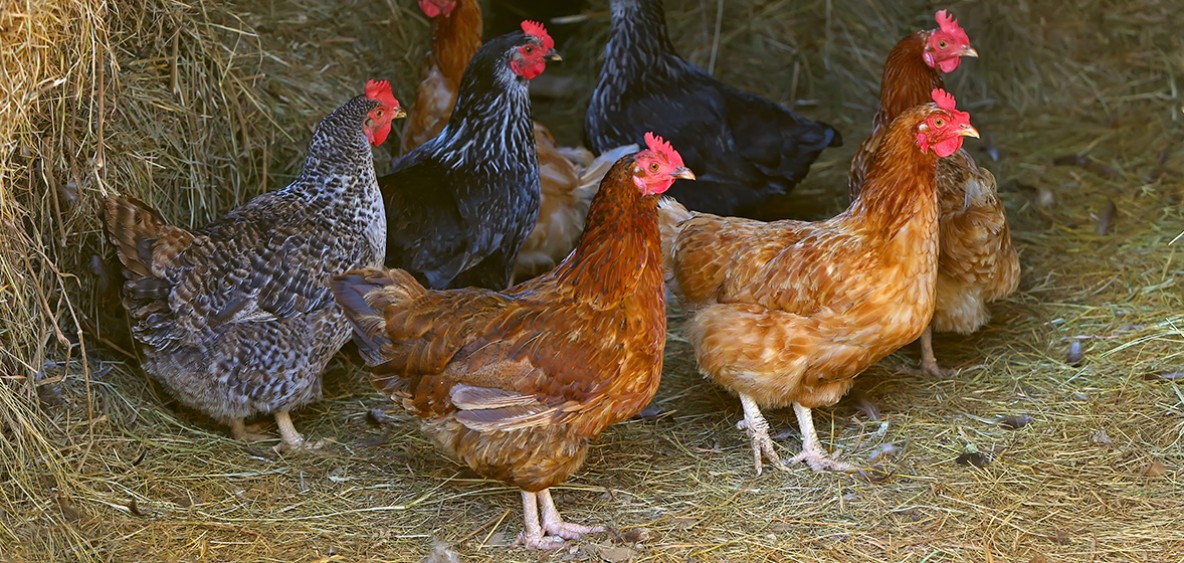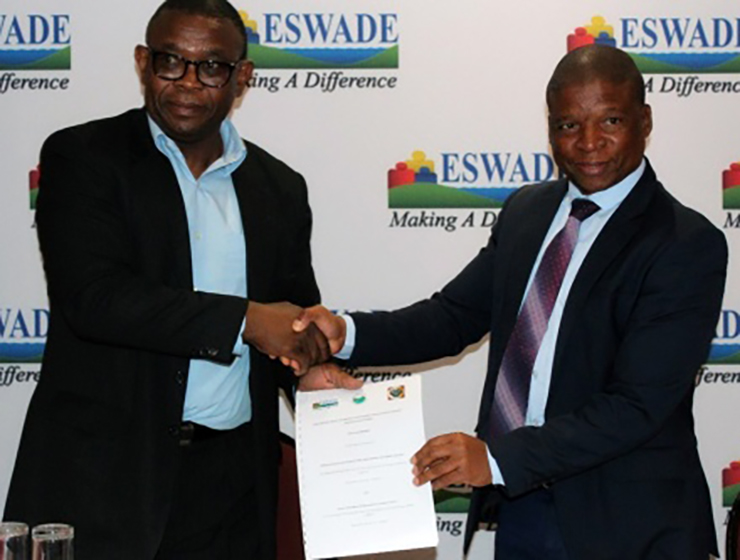
This MoU, the first ever service agreement of its kind in Eswatini, aims to catalyse market-led growth and enhance food and nutrition security in rural households.
The Resilient Food Systems Eswatini project is focused on promoting market-led growth in the agriculture sector as a means to enhance food and nutrition security, as well as to enhance the livelihoods of smallholder farmers. A key component of the project is facilitating the development of alternative value chains to improve diversification of smallholder production and build resilience to external shocks. The RFS Eswatini project ‘Climate-Smart Agriculture for Climate-Resilient Livelihoods’ (CSARL) is closely linked with IFAD’s Smallholder Market-Led Programme (SLMP), a six-year project that uses a value chain approach to encourage smallholder participation in confirmed markets in order to diversify livelihoods and promote sustainability.

In alignment with the commitment of both CSARL and SMLP to develop sustainable value chains and empower smallholder farmers, RFS Eswatini project implementor, the Eswatini Water and Agricultural Development Enterprise (ESWADE) has been identifying value chains with existing, but untapped markets to support. As a result of these efforts, ESWADE Chief Executive Officer, Mr Samson Sithole signed a Memorandum of Understanding (MoU) with the Eswatini Small Enterprise Development Company (SEDCO) to promote the commercialisation of indigenous chickens production. The signing of the MoU acknowledges the commitment of SEDCO and ESWADE in promoting the growth of a sustainable indigenous chicken value chain in Eswatini with the ultimate goal of diversifying incomes and alleviating poverty.
The upscaling of indigenous chicken production in Eswatini is an attractive investment because most rural households have reared indigenous chickens for many years. In order to take this to commercial scale, smallholders will need to be trained in and adopt good livestock management practices. Traditional rearing methods can be blended with new technologies in order to significantly improve productivity and generate new incomes. While there are a number of existing barriers to the value chain, including disease, predators and poor input quality, the service agreement between SEDCO and ESWADE creates an innovative platform through which SEDCO can address these challenges, receive feedback from key stakeholders, and integrate best practices established through the Resilient Food Systems programme and other related SEDCO initiatives.
With continued support from the Resilient Food Systems programme, this MoU aims to catalyse market-led growth and enhance food and nutrition security in rural households. As the first ever service agreement of its kind in Eswatini, it holds promise for indigenous chicken value chain growth in the region, with future lessons for other countries looking to transform existing small-scale livestock rearing practices into commercialised operations with significant income and employment generating potential.
Subscribe to our monthly newsletter to receive updates on stories directly from the field across all our projects, upcoming events, new resources, and more.